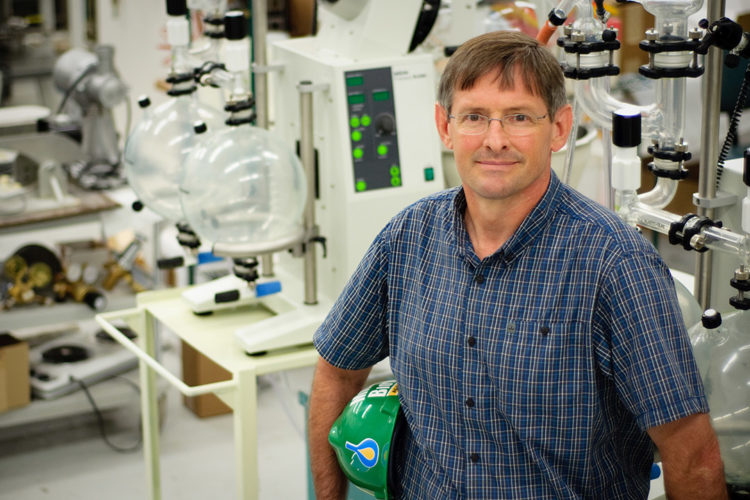A University of Saskatchewan (USask) research team’s quest to extract protein from more than a billion litres of wastewater produced annually has yielded promising results.
The researchers work to harvest the protein thin stillage at Saskatchewan’s ethanol plants, which has yielded something far more valuable: glyceryl phosphoryl choline (GPC). GPC is a compound used in many countries to slow cognition loss in Alzheimer’s patients.
“We are essentially aiming to make clinically and commercially useful products from thin stillage that’s now used as animal feed,” said Dr. Martin Reaney PhD, a USask professor in the College of Agriculture and Bioresources, who led the research team. “These products could be more valuable than the ethanol from the processing plants.”
The researchers also discovered that stillage contains other commercially useful compounds, including 1,3-propanediol (1,3-PD) that is a non-toxic antifreeze and solvent, as well as a component of polymers used to make plastics and resins.
Reaney is working with North West Terminals Ltd. in Unity, Saskatchewan, Pound-Maker Agventures in Lanigan, Saskatchewan, and Terra Grain Fuels in Belle Plaine, Saskatchewan on research to use stillage to produce concentrated protein for use in animal feed and products such as GPC and 1,3-PD.

Terra Grain Fuels is the largest wheat ethanol plant in North America, producing 150 million litres of ethanol a year. The other plants produce a combined forty million litres. The volume of thin stillage left by the process is six to ten times the amount of ethanol produced, as much as two billion litres a year.
“The idea is to take a multi-front approach to feeding the brain of Alzheimer’s patients by coupling together GPC and other brain-enhancing compounds,” said Reaney, the Saskatchewan Ministry of Agriculture Strategic Research Chair and Chair of Lipid Quality Utilization at USask, whose specialty is oilseeds and processing.
Reaney has been awarded an Engage Grant by the Natural Sciences and Engineering Research Council of Canada (NSERC) for a collaborative project with a Saskatoon company to scale up production and refine the stillage GPC to a clinical-quality product. He has also received funding from the Government of Saskatchewan’s Agriculture Development Fund.









